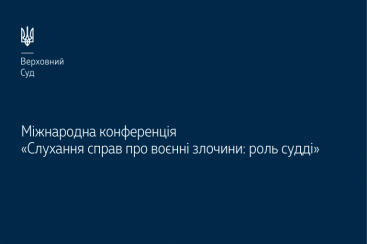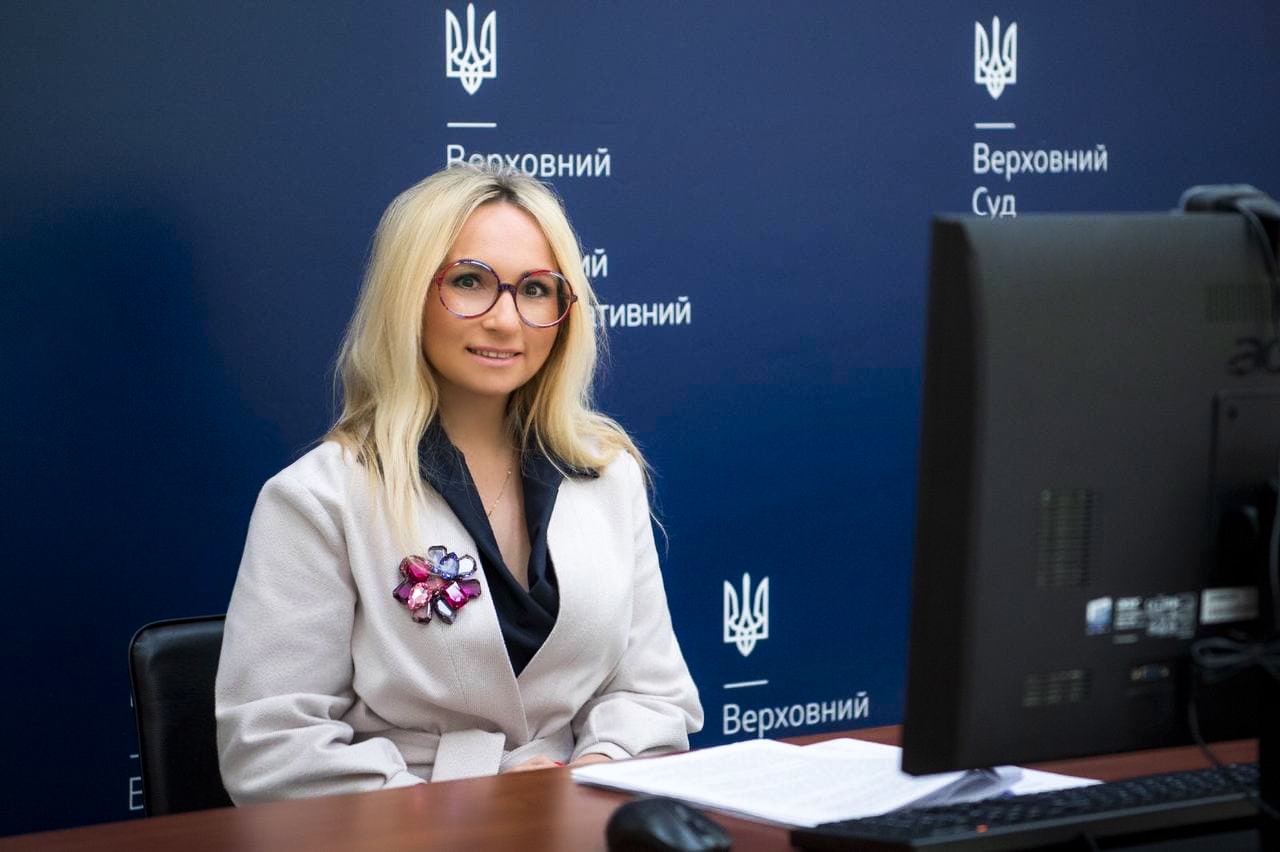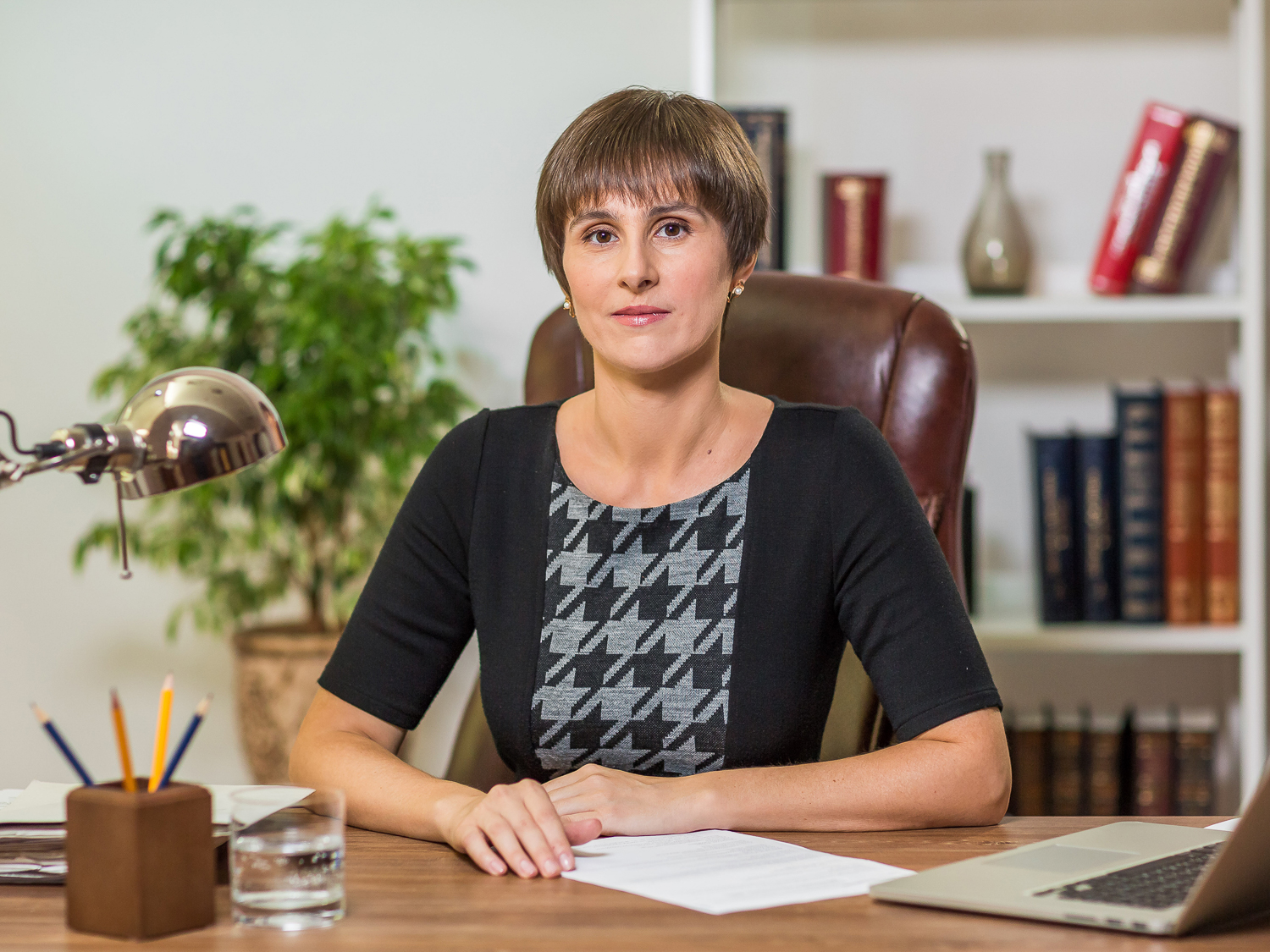Contact center of the Ukrainian Judiciary 044 207-35-46

International experts shared their experience with Ukrainian judges on how to ensure a fair trial in war crimes cases. The conference “War Crimes Hearings: The Role of a Judge” was held online on June 3, 2022, on the hundredth day of a full-scale invasion on the territory of Ukraine by the occupier. The event was organized by the project "Judiciary and Society in Ukraine" implemented under the Dutch-Ukrainian MATRA program.
The Project Leader, Deputy President of the District Court of Amsterdam for International Cooperation and the Rule of Law, who moderated the event, Esther de Rooij, stressed that there was a request from society to punish those responsible for crimes in the war. Judges must respond to this request, while adhering to international standards, maintaining balance and impartiality. The right to a fair trial and rule of law are the democratic values for which, in particular, Ukraine is now fighting. To ensure these principles, close cooperation between judges, prosecutors and defence lawyers is necessary. Experts from the Netherlands, who have experience in handling such cases, are ready to help their Ukrainian colleagues by talking about the challenges that will arise in the course of the administration of justice in this very sensitive area.
Judge of the Administrative Cassation Court within the Supreme Court Nataliia Blazhivska, speaking as a co-moderator, said that the more the Armed Forces of Ukraine liberated our lands, the more the crimes of the occupiers, for which everyone who committed them should be personally responsible, were revealed. Given this, a series of practical activities is planned, which will discuss the issues of fair and inevitable punishment of the enemies. Cases must be handled in such a way that they might not be audited by an international institution, so that decisions might be final and the perpetrators might be punished.

The judge recalled that the Law of Ukraine No. 2236-IX On the Amendment of the Criminal Procedure Code of Ukraine and Other Legislative Acts of Ukraine Regarding Cooperation with the International Criminal Court of May 3, 2022 entered into force on May 20, 2022; it determines the cooperation of this court with the Prosecutor General's Office and the Ministry of Justice of Ukraine before and after the ratification of the Rome Statute of the ICC.
During her speech, the Head of the Department for Combating Crimes Committed in the Context of Armed Conflict of the Prosecutor General's Office Valeriia Melnyk informed that, according to official data, more than 22,000 crimes related to Russian aggression had been registered. Of these, 15 thousand are precisely war crimes committed during this period. As a result of these crimes, more than 5,000 civilians were killed and more than 18,000 civilian infrastructure facilities were destroyed. This is without taking into account the crimes committed in the city of Mariupol and other settlements to which there is no access yet. The Prosecutor General's Office has already served notice of suspicion to 90 persons for war crimes. There are two first verdicts by which three people were convicted under Art. 438 of the Criminal Code of Ukraine - for committing war crimes. The Prosecutor General's Office also provides procedural guidance on pre-trial investigations under Article 442 of the Criminal Code «Genocide», as well as for the case under Article 437 of this Code on the fact of waging aggressive war, within the framework of which 623 persons have already been served notice of suspicion. This burden will fall on national courts.
The Secretary of the First Judicial Chamber, Judge of the Criminal Cassation Court within the Supreme Court Nataliia Antoniuk thanked her foreign colleagues for their support on all fronts, including the legal one. "You believe in us, and we are confidently moving towards the Victory," she said.

The judge noted that it was the first time that Ukraine had faced the problem of war crimes, so the efforts of legal scholars and practitioners were focused on increasing their knowledge in that area. She reminded that the Criminal Code of Ukraine has chap. XX "Criminal Offences Against Peace, Security of Mankind and International Legal Order." We should first of all focus on three blocks of issues: aggression, violation of the laws and customs of war, and genocide.
Nataliia Antoniuk hopes for the implementation of the universal jurisdiction principle, according to which, despite the place of commission of the crime, the nationality of the perpetrator of the crime, any state that adheres to this principle may take part in the administration of justice, may bring to justice those responsible for war crimes. At the same time, the speaker is aware that the bulk of cases will be considered by Ukrainian courts.
The speaker drew attention to the importance of the two areas of work that should precede the trial: the collection of evidence and the preparation of indictments by law enforcement agencies to bring the case to court.
The judge also stressed the need to bring to justice those who had committed the crime of aggression.
According to Nataliia Antoniuk, it is advisable that cases of Russian aggression be considered by international courts, and not only by Ukraine as a party to the conflict. Since the International Criminal Court, unfortunately, does not have jurisdiction over aggression specifically, it becomes necessary to create an International Tribunal.
The speaker drew attention to a number of issues that need to be clarified: cooperation between national courts and the International Criminal Court; use of evidence collected by Ukrainian law enforcement agencies, the ICC and national courts.
However, Nataliia Antoniuk raised the issue of bringing the perpetrators to criminal liability, given that the International Criminal Court does not have a procedure for examining the case in the absence of the accused. It is understandable that in many cases such persons will be beyond the reach of the court. It is also a cornerstone question whether the victim will have to testify several times experiencing his own tragedy, both before the national and the International Criminal Court, and whether the video and audio recordings of the testimony given in the national court will be sufficient.
With regard to the proposal by international experts to translate court decisions rendered by national courts into English, Nataliia Antoniuk said that this task should not be entrusted to national courts, as they would translate court decisions into Russian, because the accused are mainly Russian citizens. In addition, national courts will be overburdened with litigation in this category of cases. Therefore, international bodies should be involved in translating the judgments.
During the conference, the Senior Legal Advisor to the President of the Kosovo Specialist Chambers, Legal Officer for the Pre-Trial Division of the International Criminal Court, Mohamed El Zeidy, spoke about the jurisdiction of the International Criminal Court.
The judge specializing in international criminal cases, Simon van der Schenk, and judge's associate Finn Kok, spoke about the Netherlands' experience in war crimes trials.
Simon Minks, national prosecutor-coordinator for terrorism, extremism and other international crimes, informed about the experience of the Netherlands in hearing these cases from the prosecutor's point of view.